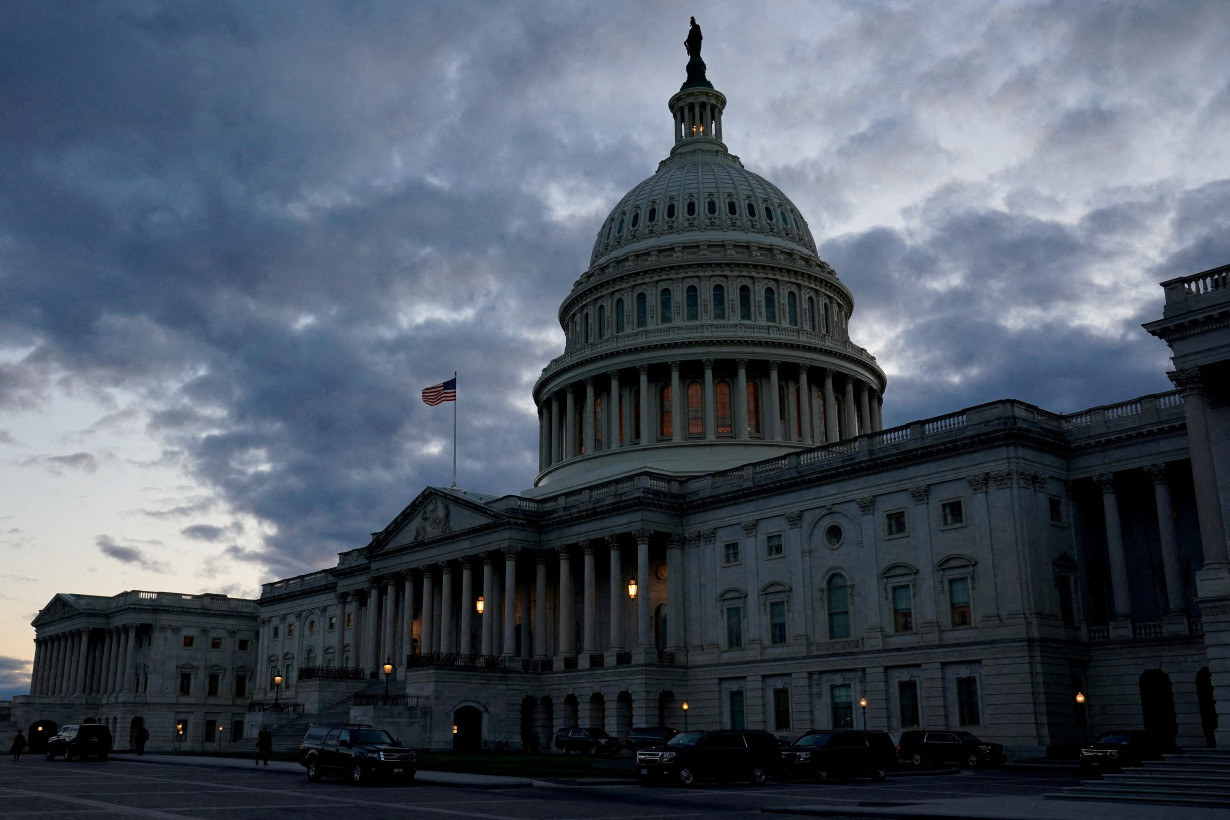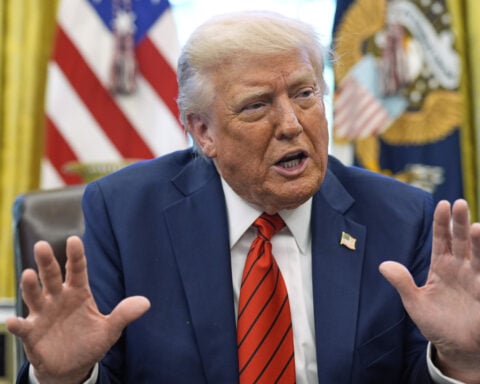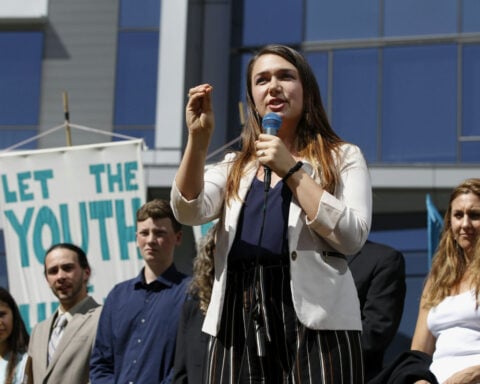By Bo Erickson
WASHINGTON (Reuters) -Top Republicans in the U.S. House of Representatives plan to move forward this week on President Donald Trump's tax cuts, but their caucus is divided with some members concerned that there are insufficient spending cuts in the budget blueprint passed by the Senate.
There is broad agreement within the party about extending President Donald Trump's 2017 tax cuts, and funding other elements of Trump's agenda including new immigration enforcement and military spending. But a divide remains on how to pay for a measure that nonpartisan budget analysts say will add about $5.7 trillion to the nation's debt over the next decade.
Deficit hawks, particularly in the House, are pushing for about $2 trillion in spending cuts over that time period. House Democrats and public health and anti-poverty advocates say that goal will be hard to reach without cutting deeply into the Medicaid program for low-income Americans and those with disabilities.
Further complicating matters is last week's brutal stock market selloff, which followed Trump's move to impose sweeping new tariffs on imported goods. Economists predict those measures will push prices higher and could trigger a recession.
Like the Senate's Saturday morning 51-48 vote to pass its version of the budget resolution, the tax cuts legislation will use a special budget process -- reconciliation -- which will allow it to bypass the chamber's normal 60-vote threshold for most legislation.
Some House Republicans raised questions as to whether the Senate measure stipulates enough spending cuts. The Committee for a Responsible Federal Budget, an outside, nonpartisan think tank, calculated the different plans and found the Senate option required only 0.2% as much in budget cuts as the House resolution.
The top Republican on the House Budget Committee, Representative Jodey Arrington of Texas, said in a statement the Senate's approach to spending cuts was "unserious and disappointing."
The think tank also said the Senate plan allows for twice as much borrowing compared to the House's version.
A House vote is expected this week on the budget process, but in order for it to be successful, the lower chamber must rectify changes between the Senate's approach and the House version that was passed in February.
Other fiscal hawks in the House piled on and bristled at the Senate's stipulated lower level of spending cuts in the resolution, as well as Senate Republicans' $1 trillion higher cap to increase the debt limit.
Representative Andy Harris from Maryland, head of the conservative Freedom Caucus, said in a social media post he was "unconvinced" about the Senate's commitment to spending cuts.
"I can’t support House passage of the Senate changes to our budget resolution until I see the actual spending and deficit reduction plans to enact President Trump’s America First agenda," Harris said.
The Senate measure would also raise the nation's debt ceiling by $5 trillion, a higher hike than the House provided in its version. Congress will need to address its self-imposed borrowing limit by sometime this summer or risk defaulting on $36.6 trillion in debt.
In a letter to colleagues, Republican House Speaker Mike Johnson and members of his leadership team pushed for passage.
The letter said that to secure passage in the House, "the final reconciliation bill must include historic spending reductions while protecting essential programs."
MEDICAID CONCERN
Senator Josh Hawley, a Republican from Missouri, told reporters that Trump last week gave him an "unequivocal" promise that Medicaid benefits would not be slashed.
This would mean House Republicans would have to change their plans, as their conference is looking for $2 trillion in spending cuts, in part by overhauling Medicaid and food assistance programs and by eliminating popular environmental policies.
House Democrats objected to the proposed spending cuts.
"Children will be devastated. Women will be devastated. Older Americans will be devastated. Everyday Americans with disabilities are going to be devastated. Hospitals and nursing homes and community health clinics are going to close," House Minority Leader Hakeem Jeffries said on MSNBC's The Weekend about such Medicaid cuts.
Some of the spending differences between the House and the Senate come from a calculation twist that Republican senators have adopted. They assert the cost of implementing the Trump agenda on taxes and other issues is several trillion dollars less than expected because it is an extension of the current Trump tax cuts from 2017.
The CRFB nonpartisan analysts argue the total cost of the 2017 tax cuts -- which were passed on a temporary basis -- would be $3.8 trillion alone. But that figure is factored out of the plans, so the think tank calls this accounting method a "gimmick" and "fiscally unprecedented."
Republican Senator Bill Cassidy from Louisiana hinted in a floor speech this calculation tactic could create spending hurdles in the future. "It's never been done before in a setting like this. I think it establishes a dangerous precedent," Cassidy said, before voting to move ahead, citing economic unease.
(Reporting by Bo Erickson, David Morgan and Richard Cowan; Editing by Scott Malone and David Gregorio)

 Trump has begun another trade war. Here's a timeline of how we got here
Trump has begun another trade war. Here's a timeline of how we got here
 Canada's leader laments lost friendship with US in town that sheltered stranded Americans after 9/11
Canada's leader laments lost friendship with US in town that sheltered stranded Americans after 9/11
 Chinese EV giant BYD's fourth-quarter profit leaps 73%
Chinese EV giant BYD's fourth-quarter profit leaps 73%
 You're an American in another land? Prepare to talk about the why and how of Trump 2.0
You're an American in another land? Prepare to talk about the why and how of Trump 2.0
 Chalk talk: Star power, top teams and No. 5 seeds headline the women's March Madness Sweet 16
Chalk talk: Star power, top teams and No. 5 seeds headline the women's March Madness Sweet 16
 Purdue returns to Sweet 16 with 76-62 win over McNeese in March Madness
Purdue returns to Sweet 16 with 76-62 win over McNeese in March Madness







